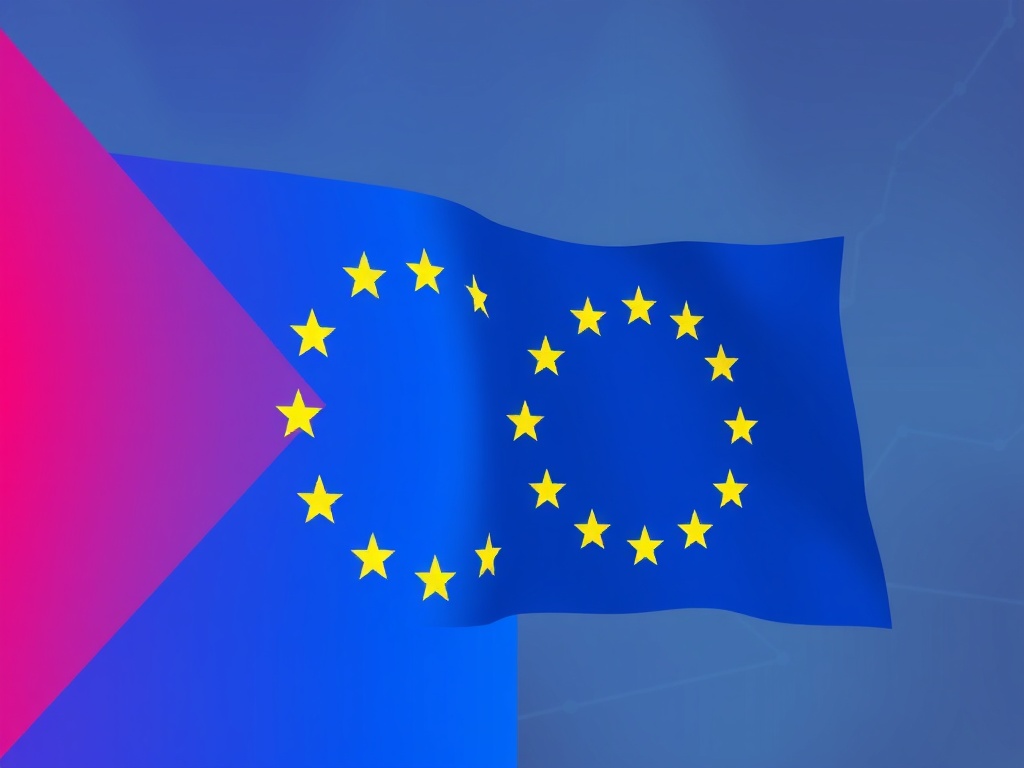BitcoinWorld

EU AI Act: Google’s Crucial Commitment Shapes Europe’s AI Future
The world of technology, much like the cryptocurrency landscape, is constantly evolving, driven by innovation but increasingly shaped by regulation. As the digital frontier expands, so does the need for clear guidelines, especially concerning groundbreaking technologies like Artificial Intelligence. A significant development on this front is Google’s recent decision to sign the European Union’s general purpose AI code of practice, a move that sends ripples across the global tech industry and sets a precedent for how major players approach the looming specter of AI regulation. For those invested in the future of decentralized tech and digital innovation, understanding these regulatory shifts is paramount, as they often hint at broader trends in how governments will engage with emerging technologies.
What is the EU AI Act and Google’s Stance?
The EU AI Act is a landmark piece of legislation designed to govern the development and deployment of Artificial Intelligence systems within the European Union. It’s a risk-based framework, categorizing AI applications into different risk levels, from “unacceptable” to “high-risk” and “limited risk.” The Act aims to ensure AI systems are safe, transparent, non-discriminatory, and environmentally sustainable, aligning with fundamental rights and EU values. While the full AI Act will take some time to come into effect, the EU has introduced a voluntary “code of practice” to help developers align with the spirit of the legislation in the interim.
Google has confirmed its commitment to this voluntary framework. This decision is particularly noteworthy given that rules for providers of “general-purpose AI models with systemic risk” are set to go into effect soon, impacting major entities like Anthropic, Google, Meta, and OpenAI. By signing, Google indicates a willingness to engage with the EU’s regulatory vision, even as it expresses certain reservations.
The Voluntary AI Code of Practice: A Deeper Dive
The general purpose AI code of practice is designed to guide AI developers in implementing processes and systems that anticipate compliance with the broader AI Act. For companies that sign on, it means adhering to a specific set of guidelines. These include:
- Providing updated documentation about their AI tools and services, enhancing transparency.
- Committing to not training AI models on pirated content, addressing copyright concerns head-on.
- Complying with requests from content owners to exclude their works from training datasets, giving creators more control.
This commitment from Google stands in sharp contrast to Meta’s position. Meta publicly stated its refusal to sign the code, criticizing the EU’s approach as “overreach” and suggesting that Europe was “heading down the wrong path on AI.” This divergence highlights the ongoing debate within the tech industry about the appropriate level and nature of AI governance. While Google acknowledges improvements in the final version of the code, its participation is a strategic move, balancing engagement with continued advocacy for its concerns.
Navigating AI Regulation: Challenges and Concerns
Despite its decision to sign, Google, through Kent Walker, president of global affairs, has not shied away from voicing significant concerns regarding both the AI Act and the associated code. Walker articulated that there’s a genuine risk that this comprehensive framework could “slow Europe’s development and deployment of AI.” Specific points of apprehension include:
- Departures from EU copyright law: Potential inconsistencies that could create legal ambiguities for AI developers.
- Slow approvals: Bureaucratic hurdles that might impede the rapid iteration and deployment essential for AI innovation.
- Exposure of trade secrets: Requirements that could force companies to reveal proprietary information, undermining competitive advantage.
These concerns are not trivial; they underscore a fundamental tension between fostering innovation and ensuring responsible development. The balance is delicate, and overly burdensome AI regulation could indeed impact Europe’s standing in the global AI race, potentially stifling the very growth it aims to govern.
Why European Union AI Policy Matters Globally
The European Union AI Act is not just a regional policy; it’s a global benchmark. The EU has a history of setting regulatory standards that are often adopted or emulated worldwide, a phenomenon sometimes referred to as the “Brussels Effect.” Just as GDPR influenced data privacy regulations across continents, the AI Act could similarly shape how other nations approach AI governance. This makes Google’s engagement, despite its reservations, a significant signal. It suggests that even major global tech companies recognize the potential for the EU’s framework to become a de facto international standard. The Act’s focus on “unacceptable risk” use cases, such as cognitive behavioral manipulation or social scoring, and “high-risk” uses in areas like biometrics and employment, sets a high bar for ethical AI development, potentially influencing global best practices.
Google AI‘s Role in Shaping the Future of Compliance
By stepping forward and signing the code, Google AI is positioning itself as a key player in the ongoing dialogue about responsible AI development and compliance. This isn’t merely passive acceptance; it’s an active engagement that allows Google to contribute to the evolving interpretations and practical applications of the code. Their involvement could influence how the rules are refined over time, advocating for solutions that balance regulatory objectives with the practicalities of large-scale AI deployment. This proactive stance might also give Google a competitive edge, as it gains early insights and experience in navigating what could become a widespread regulatory landscape, differentiating itself from competitors who choose to resist.
Google’s decision to sign the EU’s voluntary AI code of practice marks a pivotal moment in the global discourse on AI regulation. While expressing valid concerns about potential impacts on innovation and competitiveness, the tech giant’s commitment signals a strategic willingness to engage with the EU’s ambitious framework. This move not only contrasts sharply with Meta’s outright refusal but also underscores the growing importance of ethical and compliant AI development. As the EU AI Act takes shape, its influence is set to extend far beyond European borders, shaping the future of AI for developers, businesses, and users worldwide. This commitment by a leading AI innovator like Google could indeed set a powerful precedent for responsible innovation in the digital age.
To learn more about the latest AI regulation trends, explore our article on key developments shaping AI features.
This post EU AI Act: Google’s Crucial Commitment Shapes Europe’s AI Future first appeared on BitcoinWorld and is written by Editorial Team





